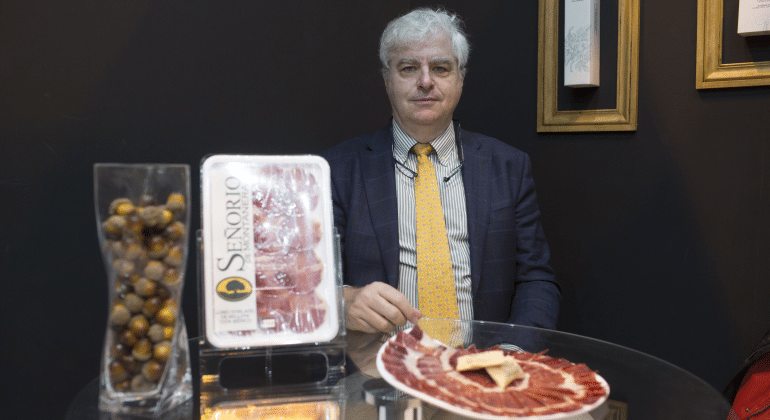Quote: ‘I expect this year to be worst in 40 years I’ve been working
Spain’s prized jamón ibérico bellota is under threat from the climate crisis, due to an increase in temperatures and low rainfall.
In Spain pigs are as populous as people, there are many varieties of ham – but none so revered as jamón ibérico bellota, retailing at €100 (£88) a kilo.
The jamón is produced exclusively from blackfoot pigs, which spend the last month of their lives gorging on acorns (bellotas) in the dehesa, a type of oak forest peculiar to the west and north-west of Spain.
Due to the unusually hot and dry summers, the oaks are producing fewer acorns.
The current climate change has lead to a drop in the market price, leading to a 20% reduction in the jamón ibérico produced last year in Extremadura, one of only four small regions with the official denominación de origen.
The 2022 summer was the hottest on record in Spain and the third driest, added to the rainfall in Extremadura having fallen by 35% over the last five decades.
“The dehesa is made up of holm oaks that are native to damp climates so it’s a relic of when the climate here was different from now,” said Francisco Espárrago, President of Señorio de Montanera, which produces top quality jamón, whose pastures fatten 15,000 Iberian pigs annually.
“The trees struggle to survive the long, hot and dry summers we’re having now,” said Espárrago.
Even if the 2023 summer is not as extreme as 2022, Espárrago said: “I expect that this year, having survived the drought of last summer and a winter with little rain, will be worst in the 40 years I’ve been working in the dehesa.”
Under regulations, ham producers are allowed to import acorns from elsewhere. Espárrago said: “The main source is Morocco and Algeria, where of course they don’t rear pigs.
“I worry that importing acorns may introduce new diseases as happened when we imported palm trees from Egypt.”
The red palm weevil was introduced into Spain, via Egypt in 1993, and subsequently destroyed tens of thousands of palms.
The finest jamón is produced in some of Spain’s poorest regions and is a vital component of their local economies, accounting for thousands of jobs.
Espárrago, 64, President and general director of Señorío de Montanera, a company that produces acorn-fed Iberian hams and shoulders, sliced meats, loins, prey and sausages with the Denomination of Origin Dehesa de Extremadura.
“It’s not just pigs. There is a lack of funding to re-plant trees. If the dehesa doesn’t survive, there will be nowhere to graze the cattle either,” added Espárrago.





